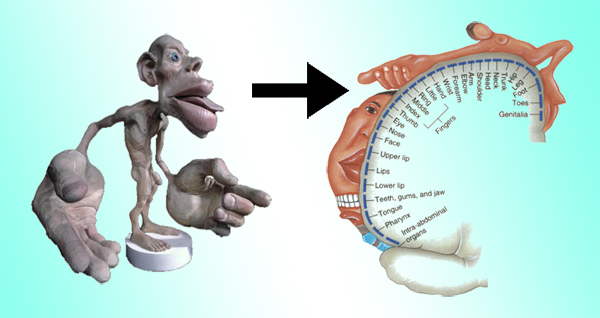Kisses Are Silent Words

We kiss in different ways: furtively, lustfully, tenderly, timidly, avidly and some lucky souls even copiously. We do it when the sun heats up the asphalt. Also, when the stars take their positions on the stage that is the night sky, with us as the protagonists. The characters in fairy tales also kiss, to wake up princesses or transform frogs. There are also kisses filled with commitment and even betrayal, such as the one Judah gave Jesus.
One way or another, kisses produce a physiological reaction in which hundreds or thousands of neuronal messages are enclosed. They can also provoke euphoric reactions or ones of sexual stimulation. Kisses are little Pandora’s Boxes which we can’t ignore each time they’re opened.
“The act of kissing is more complex than it seems. Kisses transmit powerful messages to the brain, body and to your partner.”
-Chip Walter-
During childhood, kisses form a paradox. Usually, children receive plenty of petitions for kisses on a daily basis. Many of these petitions are satisfied with authentic pleasure. However, children also sometimes suffer the tyranny of adults who can’t understand a simple “no”. No, I don’t want to kiss that person or no, I don’t feel like doing it right now. Neither children nor adults should be forced to kiss someone. If so, kisses lose a big part of their essence and can even directly attack the assertiveness of children.
Adolescents are possibly the age group which gives the most importance to kisses. They ask themselves, how do you kiss someone? What does it feel like? Will I know what to do when the time comes? In fact, when they meet someone they deem fit, teens can go to bed many nights anticipating that moment. We have all been through it, and we have all tossed and turned over that moment. As if it was an enigma, until the moment arrived. With the person they planned to do it with or maybe with another. In the opportune moment, or maybe the most disastrous one possible…but it is definitely unforgettable.
Regardless of whether it was good or bad, it is unforgettable due to the very exciting anticipation of the moment. Remember, any activity can be perfected with practice, and kissing is no exception. One way or another, we aren’t completely off track as adolescents. According to recent studies, a bad first kiss can be enough to end a promising relationship.
The origin of kisses
Some researchers think that kisses on the mouth evolved with an evolutionary utility. They highlight that this type of kiss really aided in the process of choosing a mate. Keep in mind that a lot of information is exchanged in a kiss, so it concedes a lot of material for us to base the choosing of a mate in a brief amount of time. Our sense of touch, sense of smell and certain postural aspects come into play, such as the inclination of one’s face, all of which we process subconsciously.
There is another hypothesis for the birth of kisses, which is not nearly as attractive. It has to do with the custom of primitive mothers of pre-chewing the food in order to feed their children. This hypothesis has been defended by zoologist Desmond Morris, among other researchers.

Kisses and pheromones
Contrary to other animals, we don’t have a part of our body that’s specially designed to detect pheromones. However, there are indications which suggest that humans also make use of chemical information. This is picked up through our sense of smell. This hypothesis explains, for example, why the menstrual cycles of women who work or live together can synchronize. Also, it explains why the smell of men with stronger immune systems is more attractive. Thus, the closeness that is produced during kisses will propitiate the ideal situation to pick up this chemical information.
Why the lips?
Two circumstances come together to explain why lips are the preferred choice for passionate kisses. We have a great amount of nerve endings in our lips. Furthermore, the skin which covers them is very thin and fine. In other words, it’s a place where our sense of touch is capable of producing a great amount of sensations, without requiring a strong intensity of contact.
Furthermore, in each passionate kiss we give, 5 cranial nerves intervene of the total 12 that human beings possess. What does this mean? It means that our nervous system is set up in such a way that the information we receive through a kiss circulates through many great neuronal highways in order to reach our “”Center of operations”.
As with any tactile information, the information obtained in a kiss ends up in an area of our brain called the sensorial homunculus. Within this area of the brain, the entire surface area of our bodies that is sensitive to touch is represented. In this type of “map”, the lips have a very ample space dedicated to them. Especially if this space is compared to the parts of the body which have a similar density of nerve endings.

Kisses have a different meaning for men and women
According to a study conducted by Gallup and collaborators in 2007, men and women interpret kisses in a different way throughout the evolution of a relationship. For men, a prolonged and intense kiss is the prelude to intimate closeness. It is the hallway to sexual relations, if you will. However, this advancement in romantic relationships is found somewhere else for women. Kisses, for women, would symbolize and strengthen the idea that they have chosen a good partner for the long term.
On the other hand, researchers Hill and Wilson discovered that kisses can produce a great degree of arousal if they are accompanied by certain circumstances. Yet, it also appears that women would need a greater amount of kisses to reach the same level of arousal as men.
What they did find in women as well as men, in the same proportions, is that kissing reduces stress by reducing the levels of cortisol within the body.
On the other hand, it might seem curious to you that kisses aren’t a common action for couples in every society. For example, in China, kisses on the mouth can be an act as censurable as cannibalism is to us (d’Enjoy, 1897). Furthermore, another anthropologist, in a much more recent study estimated that around 10% of humanity doesn’t give kisses on the mouth.
To conclude, I would like to point out that kissing corresponds more to a social inheritance than a cultural act. Our societies, with their rules and conceptions, are probably the ones which have produced modifications in our biology. It has cemented certain types of customs so that kissing would be a frequent behavior among couples.
One way or another, and even if only to reduce stress, let the kissing begin!
We kiss in different ways: furtively, lustfully, tenderly, timidly, avidly and some lucky souls even copiously. We do it when the sun heats up the asphalt. Also, when the stars take their positions on the stage that is the night sky, with us as the protagonists. The characters in fairy tales also kiss, to wake up princesses or transform frogs. There are also kisses filled with commitment and even betrayal, such as the one Judah gave Jesus.
One way or another, kisses produce a physiological reaction in which hundreds or thousands of neuronal messages are enclosed. They can also provoke euphoric reactions or ones of sexual stimulation. Kisses are little Pandora’s Boxes which we can’t ignore each time they’re opened.
“The act of kissing is more complex than it seems. Kisses transmit powerful messages to the brain, body and to your partner.”
-Chip Walter-
During childhood, kisses form a paradox. Usually, children receive plenty of petitions for kisses on a daily basis. Many of these petitions are satisfied with authentic pleasure. However, children also sometimes suffer the tyranny of adults who can’t understand a simple “no”. No, I don’t want to kiss that person or no, I don’t feel like doing it right now. Neither children nor adults should be forced to kiss someone. If so, kisses lose a big part of their essence and can even directly attack the assertiveness of children.
Adolescents are possibly the age group which gives the most importance to kisses. They ask themselves, how do you kiss someone? What does it feel like? Will I know what to do when the time comes? In fact, when they meet someone they deem fit, teens can go to bed many nights anticipating that moment. We have all been through it, and we have all tossed and turned over that moment. As if it was an enigma, until the moment arrived. With the person they planned to do it with or maybe with another. In the opportune moment, or maybe the most disastrous one possible…but it is definitely unforgettable.
Regardless of whether it was good or bad, it is unforgettable due to the very exciting anticipation of the moment. Remember, any activity can be perfected with practice, and kissing is no exception. One way or another, we aren’t completely off track as adolescents. According to recent studies, a bad first kiss can be enough to end a promising relationship.
The origin of kisses
Some researchers think that kisses on the mouth evolved with an evolutionary utility. They highlight that this type of kiss really aided in the process of choosing a mate. Keep in mind that a lot of information is exchanged in a kiss, so it concedes a lot of material for us to base the choosing of a mate in a brief amount of time. Our sense of touch, sense of smell and certain postural aspects come into play, such as the inclination of one’s face, all of which we process subconsciously.
There is another hypothesis for the birth of kisses, which is not nearly as attractive. It has to do with the custom of primitive mothers of pre-chewing the food in order to feed their children. This hypothesis has been defended by zoologist Desmond Morris, among other researchers.

Kisses and pheromones
Contrary to other animals, we don’t have a part of our body that’s specially designed to detect pheromones. However, there are indications which suggest that humans also make use of chemical information. This is picked up through our sense of smell. This hypothesis explains, for example, why the menstrual cycles of women who work or live together can synchronize. Also, it explains why the smell of men with stronger immune systems is more attractive. Thus, the closeness that is produced during kisses will propitiate the ideal situation to pick up this chemical information.
Why the lips?
Two circumstances come together to explain why lips are the preferred choice for passionate kisses. We have a great amount of nerve endings in our lips. Furthermore, the skin which covers them is very thin and fine. In other words, it’s a place where our sense of touch is capable of producing a great amount of sensations, without requiring a strong intensity of contact.
Furthermore, in each passionate kiss we give, 5 cranial nerves intervene of the total 12 that human beings possess. What does this mean? It means that our nervous system is set up in such a way that the information we receive through a kiss circulates through many great neuronal highways in order to reach our “”Center of operations”.
As with any tactile information, the information obtained in a kiss ends up in an area of our brain called the sensorial homunculus. Within this area of the brain, the entire surface area of our bodies that is sensitive to touch is represented. In this type of “map”, the lips have a very ample space dedicated to them. Especially if this space is compared to the parts of the body which have a similar density of nerve endings.

Kisses have a different meaning for men and women
According to a study conducted by Gallup and collaborators in 2007, men and women interpret kisses in a different way throughout the evolution of a relationship. For men, a prolonged and intense kiss is the prelude to intimate closeness. It is the hallway to sexual relations, if you will. However, this advancement in romantic relationships is found somewhere else for women. Kisses, for women, would symbolize and strengthen the idea that they have chosen a good partner for the long term.
On the other hand, researchers Hill and Wilson discovered that kisses can produce a great degree of arousal if they are accompanied by certain circumstances. Yet, it also appears that women would need a greater amount of kisses to reach the same level of arousal as men.
What they did find in women as well as men, in the same proportions, is that kissing reduces stress by reducing the levels of cortisol within the body.
On the other hand, it might seem curious to you that kisses aren’t a common action for couples in every society. For example, in China, kisses on the mouth can be an act as censurable as cannibalism is to us (d’Enjoy, 1897). Furthermore, another anthropologist, in a much more recent study estimated that around 10% of humanity doesn’t give kisses on the mouth.
To conclude, I would like to point out that kissing corresponds more to a social inheritance than a cultural act. Our societies, with their rules and conceptions, are probably the ones which have produced modifications in our biology. It has cemented certain types of customs so that kissing would be a frequent behavior among couples.
One way or another, and even if only to reduce stress, let the kissing begin!
This text is provided for informational purposes only and does not replace consultation with a professional. If in doubt, consult your specialist.







